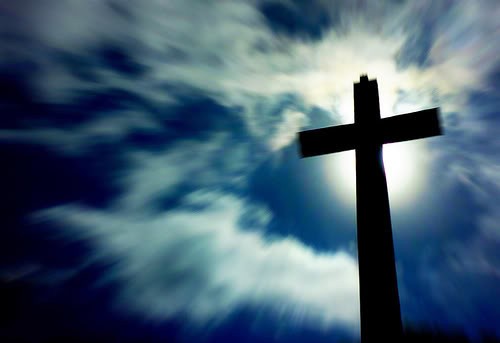Happy Moltmann Monday, but more importantly, blessed Holy Week to you all. (Not happy…happy holy week would be a strange thing to say.) As we prepare to ponder the last week of Jesus’ life before Easter, here are some thoughts from The Way of Jesus Christ:
Jesus died the death of all the living, for he was mortal and his death struggle he participated in the fate of everything that lives- not merely the fate of human beings; for all living things desire to live and have to die…
Jesus died the death of all living things. That is, he did not only die ‘the death of the sinner’ or merely his own ‘natural death.’ He died in solidarity with the whole sighing creation, human and non-human- the creation that ‘sighs’ because it is subject to transience. He died the death of everything that lives. The death of all the living can neither be called the ‘consequence of sin’, nor can it be termed ‘natural.’ It is a destiny to which every living thing is subjected, and which hence spurs us on to yearn for cosmic deliverance. This death is the sign of tragedy in creation; but because of the resurrection of the Christ who died, the sign is re-interpreted into a universal hope for a new creation in glory (Romans 8:19ff). Jesus therefore dies the death of everything that lives in solidarity with the whole sighing creation. The sufferings of Christ are therefore also ‘the sufferings of this present time’ (Rom. 8:18), which are endured by everything that lives. But we can also say, conversely, that created beings in their yearning for life suffer ‘the sufferings of Christ.’ The Wisdom of the whole creation, which is here subject to transience, suffers in Christ the death of everything that lives (1 Cor. 1:24).
Okay. This is actually a long section, and I thought this paragraph best summed up what Moltmann is trying to say. To back up a bit, he’s been arguing about what kind of death Jesus suffered, which is only something navel-gazing theologians ask themselves, really. But the SCOPE of our answer is important, so here’s what he said. If the wages of sin are death, and Jesus is sinless, then he would have been immortal. But then he wouldn’t have died the death of sinners OR a natural death, which brings to question what he exactly “saved” us from in the process. He could have died vicariously for sinners as a willing act of empathy, but…is that all that’s happening? And if he only died the death of sinners, how does that fulfill the promise that death is no more when that leaves out the vast majority of creation? But if he only saved us from a natural death, well, that’s not exactly comprehensive either, right?
I’m vastly simplifying this. Anyway. Moltmann decides to expand the debate of death of sinner vs. natural death entirely because neither of them get it all the way right, and even if you combine them you’re still a little ways off. Instead, Moltmann describes Jesus as entering into the death of all living things. ALL of it. Every last little bit. And then what happens is that all of this death enters into the process of the future of God, which we call new creation. Jesus brings creation through the portal into new life, to use sci fi language. He opens the door to this new dimension of possibility.
Pastorally speaking, we can say that Jesus enters into the deepest, most longing sigh on behalf of himself and all of creation. He sighs in the way the Spirit groans for us when we do not know what to say. He sighs rejection and bewilderment and confusion and oppression and vulnerability. He sighs God-forsakenness. He sighs so deep and wide that God hangs dead upon a cross when it is over. And that sigh turns to silence for three days, like a harsh winter waiting for spring to burst forth. Like a valley of dry bones waiting to start dancing. Like a pile of ashes waiting to be swirled into something beautiful and new.
Jesus died the death of all the living. Or, we could say, Jesus died the death of all the dying things everywhere for all time.
Jesus is with us in our sighs. He is with the whole sighing creation. And since he brings all of creation with him on the cross, he also brings all of sighing creation with him into Easter morning.

I can’t begin to read that book. I’m rereading Theology of Hope, Crucified God, and The Coming of God. Not sure what I’ll read after that.
Reading Moltmann is hard work at times but well worth the effort.
Thanks for all your Moltmann Monday’s posts. I always look forward to them;)
That’s a good list, Juan!
Thanks for reading! I’m glad you like the posts. :)
i have many questions now. they are hopeful questions. this brings to mind specific words such as “disembodiment” and “continuum” along with “made-up words” when there are none. then there is the “line of desolation” which might have been something i used to describe “oh look how sad all this” combining ’cause effect of death continuum’ in creation and anything sad with-toward-happening to people over the epochs” then I’m just going to use the word “cosmic -effect and continuum of ceaseless pain or etc-” to “stay on the safe side”. all of this “restored?” or “restoring?” then how this applies to ask and receive anything. or is this too literal-tunnel vision – or too much or off topic. i am fully interested in this obviously – i dream big – fall flat. is fine. I’m not wearing an accent btw.
Simply fantastic!